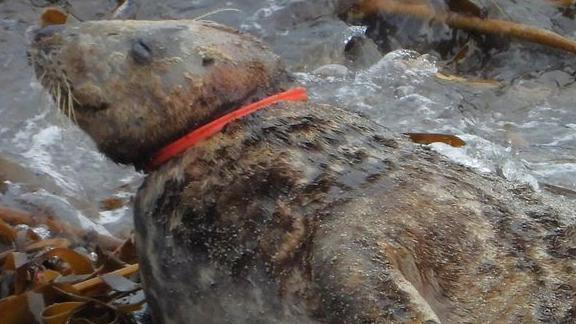Seal campaigners welcome voluntary flying ring ban
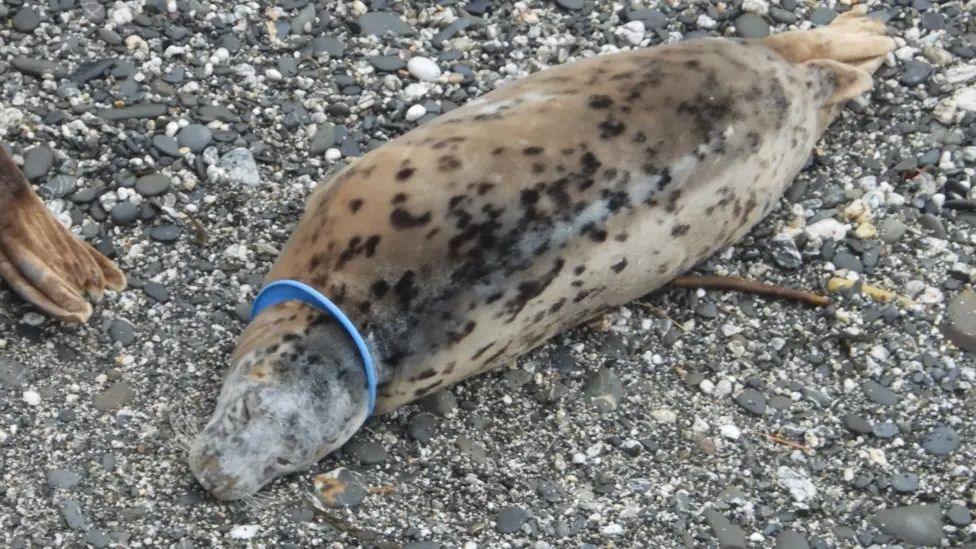
Seals often get the toys trapped around their necks, causing pain, disease and even death
- Published
Wildlife campaigners have welcomed a voluntary ban by Cornwall Council on plastic flying rings to protect the county's seals.
Council member Rosie Moore proposed the voluntary ban on the sale, purchase and use of such rings, which was passed unanimously by the council on Tuesday.
The ban follows similar moves by other councils across England and Wales, as well as retailers such as Tesco and Sainsbury's volunteering to stop selling the toys, which can cause fatal injuries to seals.
Moore said she was "absolutely delighted" with the decision, which would protect marine wildlife from "horrendous" injuries.
As the ban is voluntary, shopkeepers and beachgoers will not face fines or other penalties for breaking it.
However, Moore said areas such as Swansea that had implemented similar voluntary bans had seen a "really positive uptake".
She said people were "really horrified" when they found out about the dangers of flying rings to animals if they got caught in them.
She said: "No-one really wants to see animal in pain or hurt of suffering."
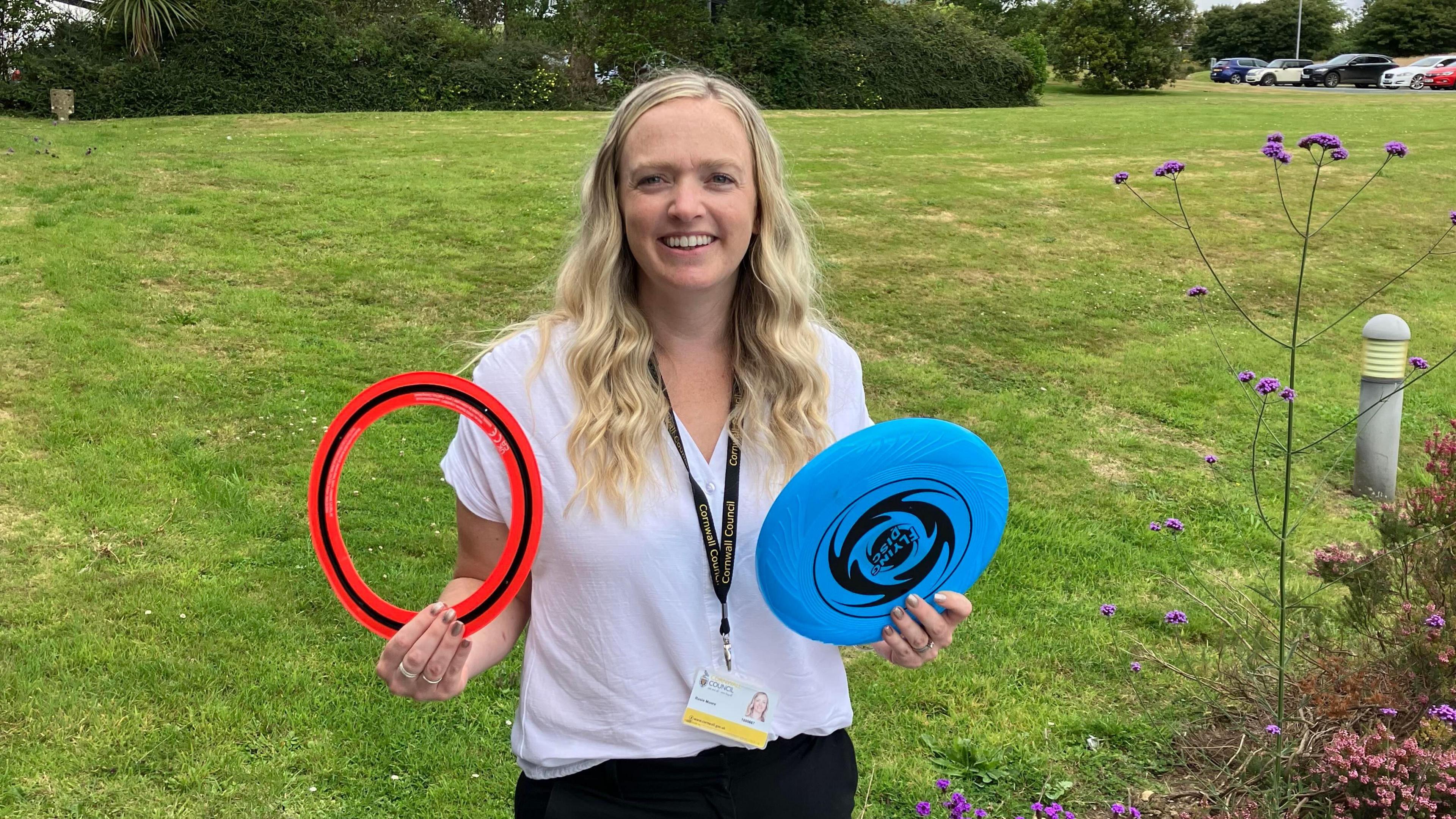
Rosie Moore's proposal was passed unanimously by the council
Moore said seals often became trapped in the toy rings, sometimes around their necks, which cut into their skin and could cause fatal infections.
She said seals, as well as dolphins, manatees and other marine animals, saw rings as toys, but "once it's down their neck, it's like a deadly trap".
She said seals elongated their necks to feed, so, when they retracted their necks back, the pressure of the water forced the ring "solid on seal's neck".
The injuries were fatal for most seals, she said, but even when they could be saved rehabilitating them could cost up to £15,000 each.
'Seals in pain continuously, and all because of a toy left behind'
Rosie Moore discusses why she proposed the voluntary ban
Moore said the next steps after the vote would include contacting local businesses to ask them to discontinue offering the products, as well as putting posters on beaches to educate tourists.
She said she hoped the Cornish ban would put pressure on the government to introduce nationwide measures.
An online petition to ban the rings, launched in May, has gathered more than 42,000 signatures.
Sue Sayer MBE, Seal Research Trust founder, said Cornwall Council had "always been pioneers for the environment because our seascapes are Cornwall's greatest asset".
She said safer alternatives, such as wildlife-safe solid disc toys, were available, adding: "We are not spoiling people's fun or taking away trade from retailers, quite the opposite."
A spokesperson from the Cornish Seal Sanctuary said it "strongly supported" the voluntary ban.
They said: "Over the years, our animal care team has witnessed first-hand the devastating consequences these toys can have on seals.
"Despite our efforts to treat and rehabilitate injured seals, prevention is always better than cure."
Follow BBC Cornwall on X, external, Facebook, external and Instagram, external. Send your story ideas to spotlight@bbc.co.uk, external.
- Published5 July 2023
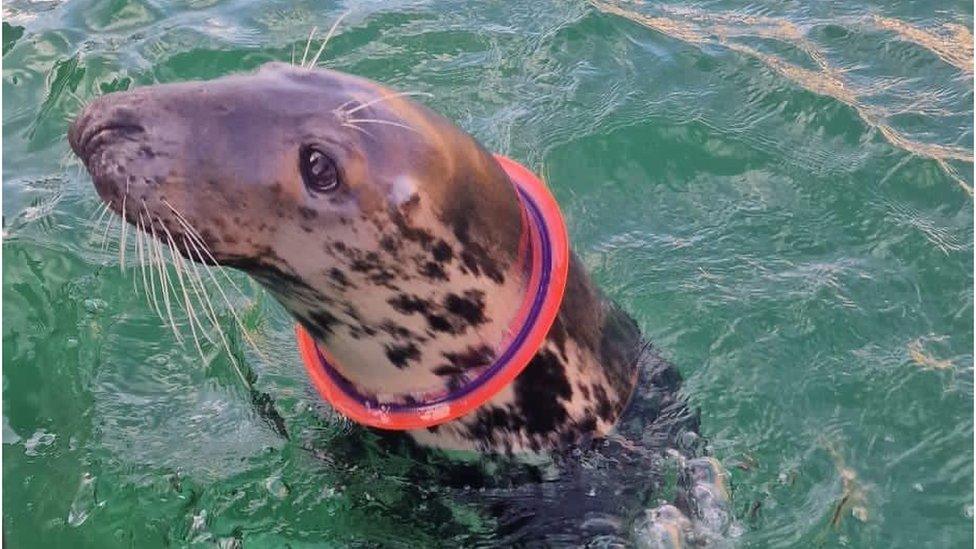
- Published12 May 2024
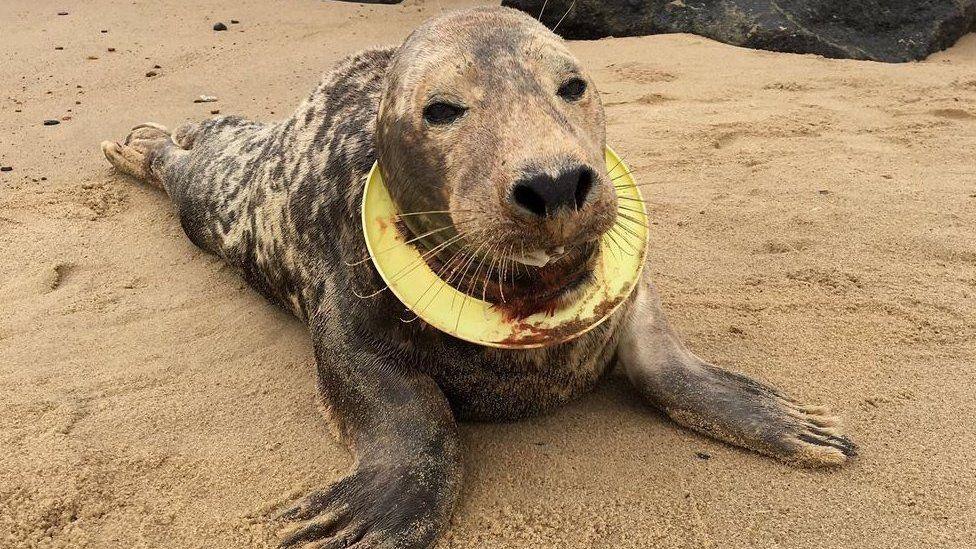
- Published23 March 2022
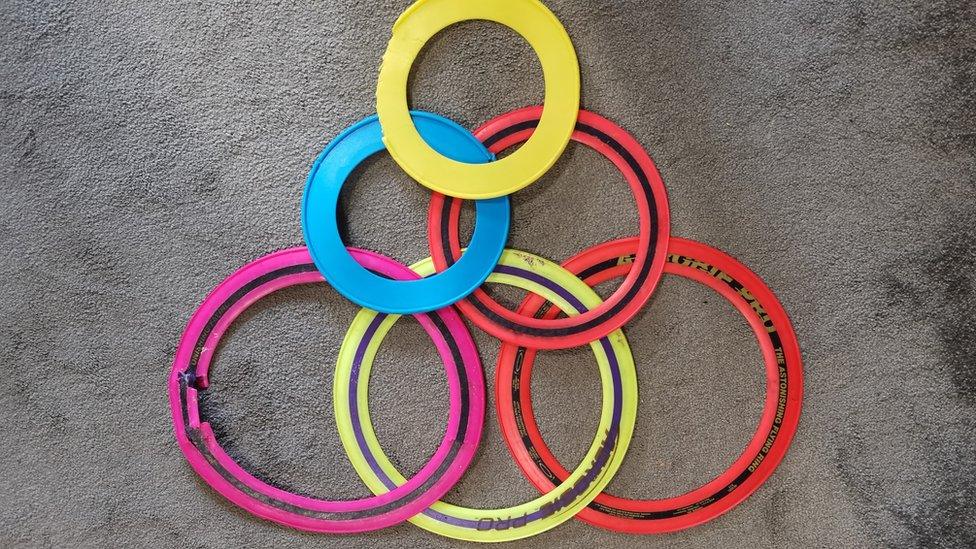
- Published25 August 2023
- Published26 December 2023
